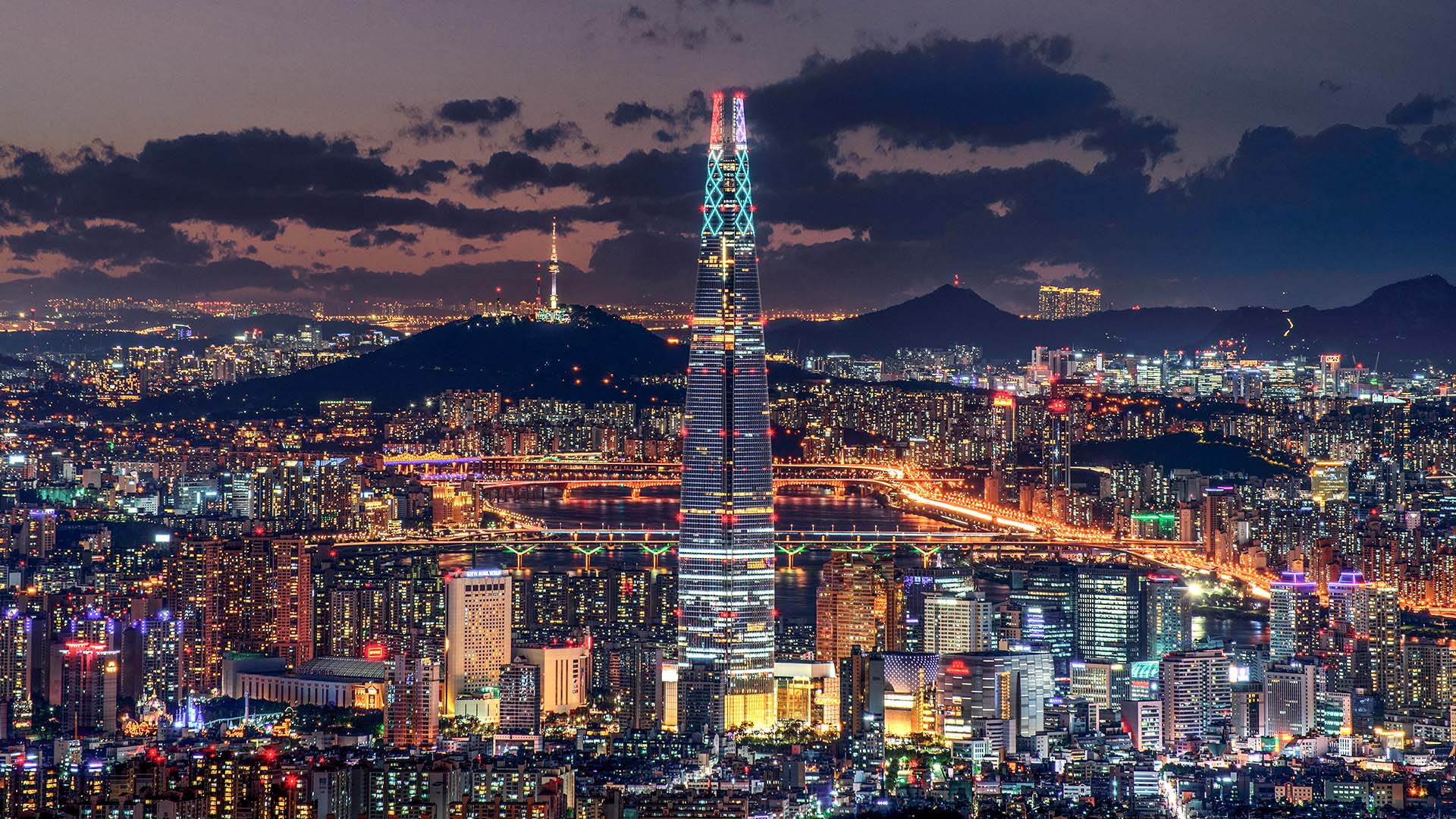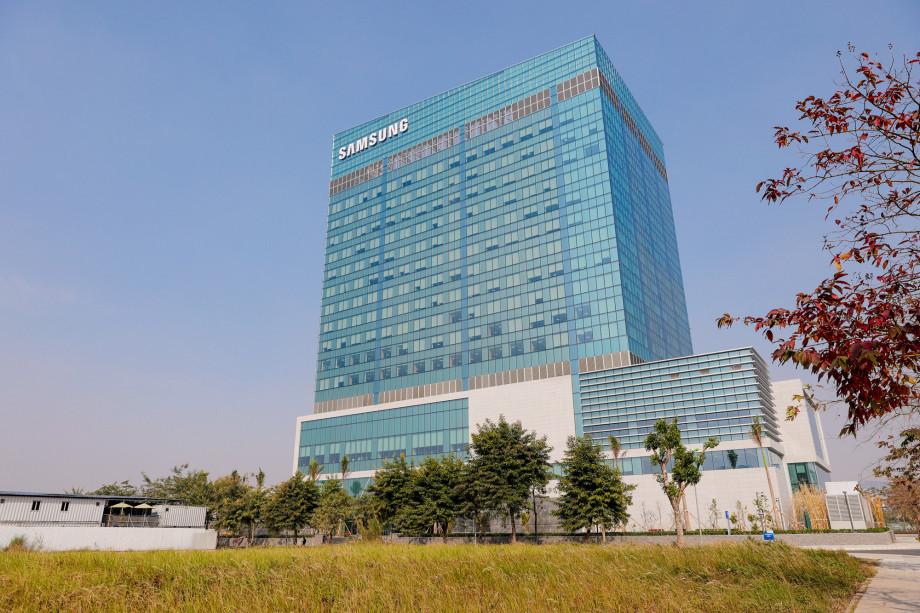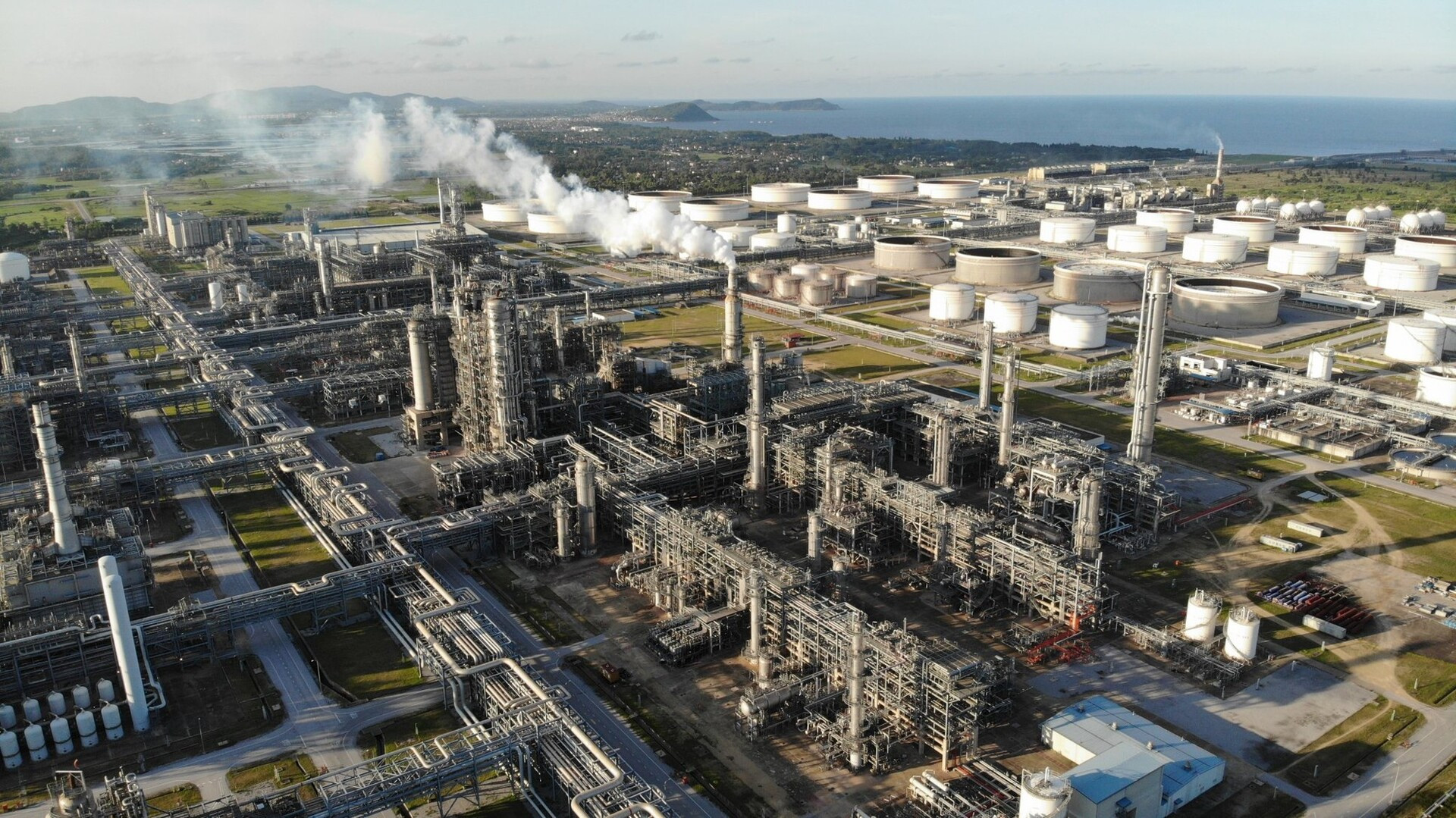South Korea has become a global powerhouse in science, technology, information, and digital communications, driven by bold government investments and private sector innovation, according to South Korean Ambassador to Vietnam Choi Young Sam.
In an exclusive interview with VietNamNet, he shared insights on trade, investment, and technological cooperation between the two nations.

Vietnam and South Korea have set ambitious targets to enhance trade and investment. What specific strategies are being implemented to strengthen commercial ties, attract investment, and overcome existing challenges?
Ambassador Choi Young Sam: Vietnam and South Korea are key economic partners, maintaining a close relationship in trade and investment cooperation. The two countries rank as each other’s third-largest trading partners, while South Korea remains the largest cumulative investor in Vietnam.
Bilateral trade, which was only USD 500 million at the time of diplomatic relations establishment, surpassed USD 10 billion for the first time in 2010 and grew more than 170 times last year, reaching an estimated USD 86.7 billion. The two countries have also set a common goal of achieving USD 100 billion in bilateral trade this year and USD 150 billion by 2030.
Both nations are fostering a mutually complementary partnership in various industries such as textiles, chemicals, electronics, and shipbuilding. They are also striving to expand cooperation in the service sector, including distribution, finance, ICT, cultural content, as well as in high-tech fields such as semiconductors, AI, and data centers.
Additionally, I believe that establishing a stable supply chain for critical minerals and collaborating in clean energy sectors, such as nuclear power and hydrogen, will be strategic areas of cooperation to achieve sustainable growth and strengthen economic ties between the two countries.
On the other hand, external uncertainties are rising due to intensifying global competition and the emergence of de-globalization trends following the COVID-19 pandemic. While this situation enhances geopolitical value and positions in global supply chains, it may also impact trade and investment between Vietnam and South Korea.
Furthermore, Vietnam's policies and mechanisms are evolving, with selective foreign investment attraction, adjustments in investment incentives, government restructuring, and tax system reforms. As a result, businesses from both countries must adapt well to this changing environment to achieve mutual prosperity and development.
This year marks the 10th anniversary of the Vietnam-Korea Free Trade Agreement (VKFTA), making it a significant milestone in the investment and trade partnership between the two countries. I hope that the Vietnamese government will introduce more proactive investment and trade policies to help both nations achieve their shared objectives.
In 2024, Vietnam continued its impressive economic expansion, solidifying its role in the global economy. What were its most significant achievements, particularly in economic growth, technological innovation, and international affairs? Do you see any parallels with South Korea’s own development?

Ambassador Choi Young Sam: Vietnam’s economy grew by an impressive 7.09% last year, surpassing expectations despite global economic uncertainties. The country’s total trade turnover reached $786.3 billion, with a trade surplus of $24.8 billion.
Vietnam also recorded its highest foreign direct investment (FDI) disbursement since 2020, reaching $25.3 billion.
These figures highlight Vietnam’s remarkable progress, but beyond the numbers, I want to emphasize the country’s proactive efforts in improving investment policies and the business environment, which have laid the foundation for this growth.
For example, to support investors facing increased tax burdens due to the global minimum tax implementation in 2024, Vietnam’s National Assembly passed a decree on December 31, 2024, establishing an investment support fund. This move has created a stable framework for high-tech South Korean enterprises to invest and operate in Vietnam.
Additionally, a decree on direct electricity purchase mechanisms was issued in July last year, allowing investors easier access to renewable energy, an essential step in addressing climate change.
These measures will further boost investment, expand Vietnam’s exports, and contribute to double-digit economic growth.
South Korea’s economic success was built on a manufacturing- and export-driven model, which closely aligns with Vietnam’s current growth strategy. As a key trade and investment partner, South Korea’s experience can play a vital role in Vietnam’s journey toward becoming a developed nation.
South Korea has achieved economic growth through a development model focused on manufacturing and exports, a model that also aligns with Vietnam's current growth strategy. With its experience as a key partner in investment and trade, South Korea can significantly contribute to Vietnam’s journey toward becoming a developed nation in the future.
Ambassador Choi Young Sam: South Korea has established itself as a powerhouse in science and technology, information and communication technology, and digital engineering through a combination of proactive policies and bold government investments, along with voluntary innovation from the private sector.
These accumulated knowledge and experiences from South Korea can serve as valuable references for Vietnam as the country focuses on making scientific and technological innovation, digital transformation, and green technology development the main pillars of its national development process.
In the field of science and technology research and development, the two countries continue to promote joint research and human resource exchanges, particularly in advanced science and technology sectors such as biotechnology (BT), nanotechnology (NT), information technology (IT), and climate technology (CT). Additionally, they plan to expand research cooperation into digital transformation, clean energy, and renewable energy in 2025.
Notably, the Vietnam-Korea Institute of Science and Technology (VKIST), modeled after the Korea Institute of Science and Technology (KIST), was established through South Korea’s official development assistance (ODA) project. It serves as a symbolic institution representing the two countries' scientific and technological cooperation.
In the future, VKIST is expected to become a center for advanced technology research and talent training, playing a crucial role in Vietnam’s industrial development and technological innovation. Furthermore, an ODA project in the research and development sector, valued at approximately USD 30 million and implemented over 10 years from 2024 to 2033, will provide a foundation for strengthening applied technology development and collaboration between businesses and universities in Vietnam.
The two countries are also continuously expanding their cooperation in digital transformation. The annual “Vietnam-Korea Digital Forum” and Vietnam’s AI-related events are facilitating policy-sharing, experience exchange, and the introduction of the latest technologies in digital transformation and artificial intelligence. These initiatives also foster interactions between businesses from both nations.
Additionally, South Korea is sharing its experience with regulatory sandbox mechanisms to promote technological innovation and establish new standards and frameworks for the digital era. It is also supporting the creation of legal and institutional foundations to develop Vietnam’s digital industry.
This collaboration is thriving not only at the government level but also in the private sector. Samsung Electronics has established a large-scale R&D center in Vietnam and is working with major universities to train human resources in high-tech fields such as networks, mobile devices, and semiconductors.
The R&D center of LG Electronics is also contributing to human resource development in Vietnam through cooperation with universities in Da Nang for research, development, and recruitment. Meanwhile, Hana Micron is collaborating with universities in Bac Giang province to offer semiconductor back-end training programs and develop skilled personnel.
In the field of green technology, the South Korean Ministry of Environment and Vietnam’s Ministry of Natural Resources and Environment annually organize ministerial meetings, forums, and seminars on environmental technology. These events serve as platforms for sharing South Korea’s expertise and cutting-edge technologies in renewable energy, waste management, and eco-friendly material development, ultimately supporting Vietnam’s sustainable development.

Samsung is Vietnam’s largest foreign investor, significantly shaping the country’s manufacturing and technology ecosystem. How do you assess Samsung’s contributions and its potential to accelerate Vietnam’s high-tech industrial transformation?
Ambassador Choi Young Sam: Samsung's investment activities play a crucial role in driving the growth of Vietnam's manufacturing and export sectors while also shaping the country's technology ecosystem.
Since 2008, Samsung Electronics has established mobile phone manufacturing plants in the provinces of Bac Ninh and Thai Nguyen, near Hanoi, producing approximately half of the world's smartphones.
Additionally, the corporation has built and operates a home appliance manufacturing complex in Ho Chi Minh City. The total number of Vietnamese employees working at Samsung’s projects in Vietnam, including Samsung Display, Samsung Electronics, and Samsung SDI, exceeds 90,000. Moreover, I understand that more than 300 Vietnamese companies are involved in Samsung’s smartphone ecosystem as partner firms.
Samsung is also pursuing future-oriented investments to align with the Vietnamese government’s high-tech development policies and economic strategies. Samsung Display has announced a new USD 1.8 billion investment in advanced OLED technology for automotive and information technology applications, in addition to its current OLED production for smartphones. Meanwhile, Samsung Electronics is considering new investments in the semiconductor packaging sector.
The Samsung R&D Center, established in 2022, currently employs over 2,000 researchers, primarily Vietnamese, who focus on smart devices, network technologies, software, and more. Additionally, through the Samsung Innovation Campus program, the corporation is providing training in cutting-edge technologies such as the Internet of Things, artificial intelligence, and big data to young Vietnamese talents.
South Korea has been actively contributing to the development of Vietnam's infrastructure and energy sectors. Given Vietnam’s increasing focus on green energy and sustainable urban planning, could you share how South Korean businesses can support these efforts? Additionally, could you highlight some key projects or cooperation programs in areas such as renewable energy, smart cities, and sustainable transportation?

Ambassador Choi Young Sam: The South Korean government and businesses have shown great interest and hope to participate in large-scale infrastructure projects that Vietnam has recently decided to implement, such as the North-South high-speed railway and nuclear power plants.
Notably, South Korea has experience in adopting technology from other countries to achieve technological self-sufficiency. Therefore, it can be said that South Korea is an ideal partner that can provide practical support to Vietnam in attaining technological autonomy and operational capability.
Additionally, South Korea is also actively involved in urban development projects in Vietnam, particularly smart cities. Some notable advanced smart city projects developed by South Korean enterprises in Vietnam include the West West Lake – Starlake Hanoi urban area by Daewoo, the Nha Be urban area in Ho Chi Minh City by GS, and the Eco Smart City Thu Thiem project by Lotte.
The Vietnam–Korea Cooperation Center for Smart Cities and Construction Technology was established last year, and I hope that smart city collaboration between the two countries will continue to strengthen in the future.
In the energy sector, coal-fired power accounted for 33% of Vietnam’s total electricity generation as of last year. As a result, cooperation in renewable energy, including LNG power and solar energy, has been actively expanding.
Regarding the Long An LNG Power Plant Project and the Hai Lang – Quang Tri LNG Power Center Project, South Korean companies GS Energy and Hanwha Energy have been selected as investors and are currently negotiating contracts.
Meanwhile, South Korean companies such as Posco and SK are showing interest and participating in bidding for the Quynh Lap – Nghe An LNG Power Plant Project and the Nghi Son – Thanh Hoa LNG Power Plant Project.
How do you envision the future of Vietnam-South Korea relations? What areas hold the most potential for expanded cooperation?
Ambassador Choi Young Sam: The P4G Summit is expected to be held in Vietnam in April, while the APEC Summit is scheduled to take place in South Korea in November.
Vietnam and South Korea will continue to strengthen political trust and enhance their comprehensive strategic partnership through meetings and exchanges between high-level leaders, including top leadership. Additionally, South Korea will further promote cooperation, including the implementation of the Korea–ASEAN Solidarity Initiative (KASI) for peace, stability, and prosperity in the region.
In terms of economic cooperation, both countries will work together to achieve the goal of $150 billion in bilateral trade by 2030 while strengthening collaboration in various sectors such as future industries, high technology, development cooperation, small and medium enterprises, venture capital, startups, culture, tourism, and people-to-people exchanges.
Many consider the current relationship between Vietnam and South Korea to be at its best; however, I believe the best phase of our bilateral relations is yet to come. I am confident that the potential for cooperation between our two countries across all fields is limitless, and I will strive to further unlock these possibilities.
Pham Vu Thieu Quang